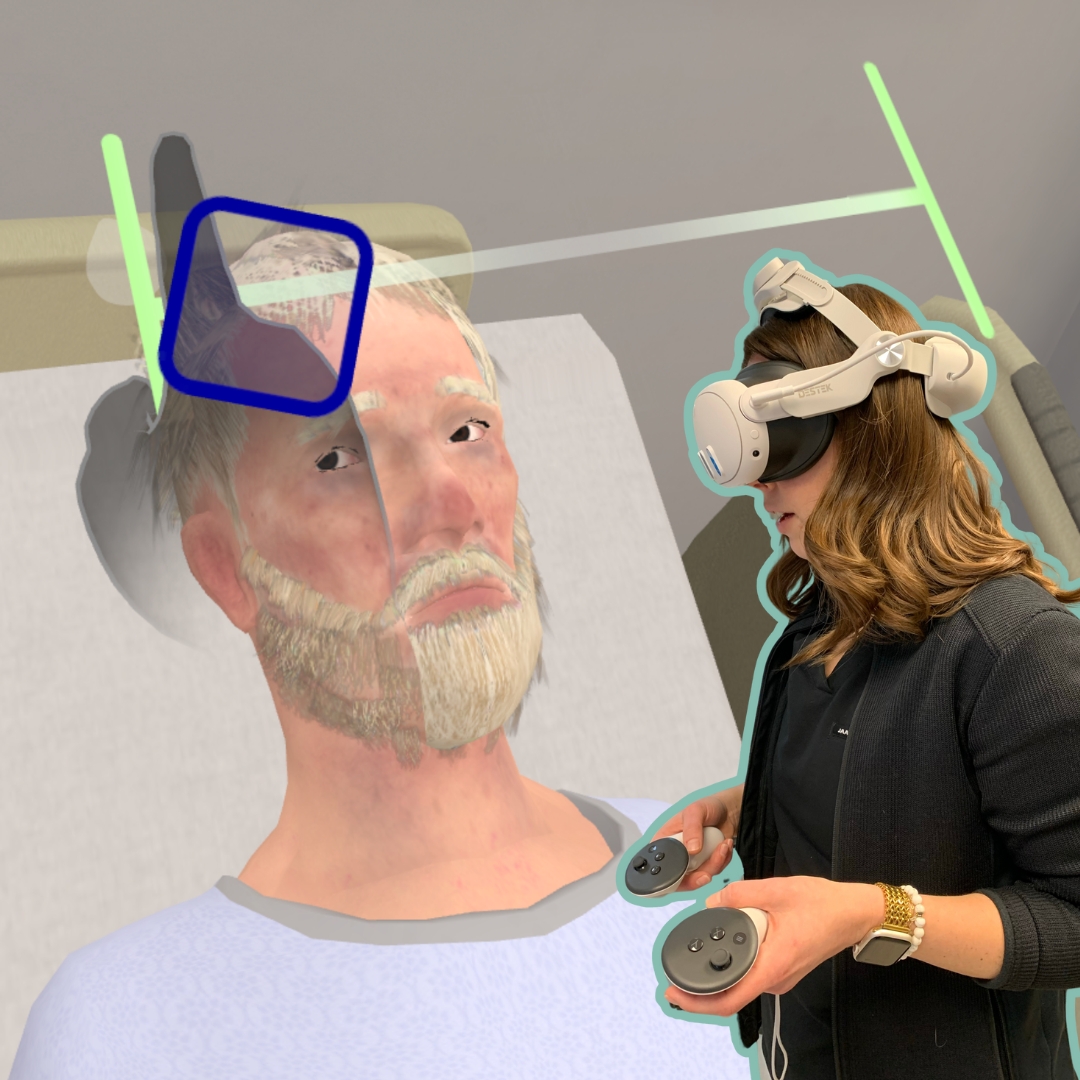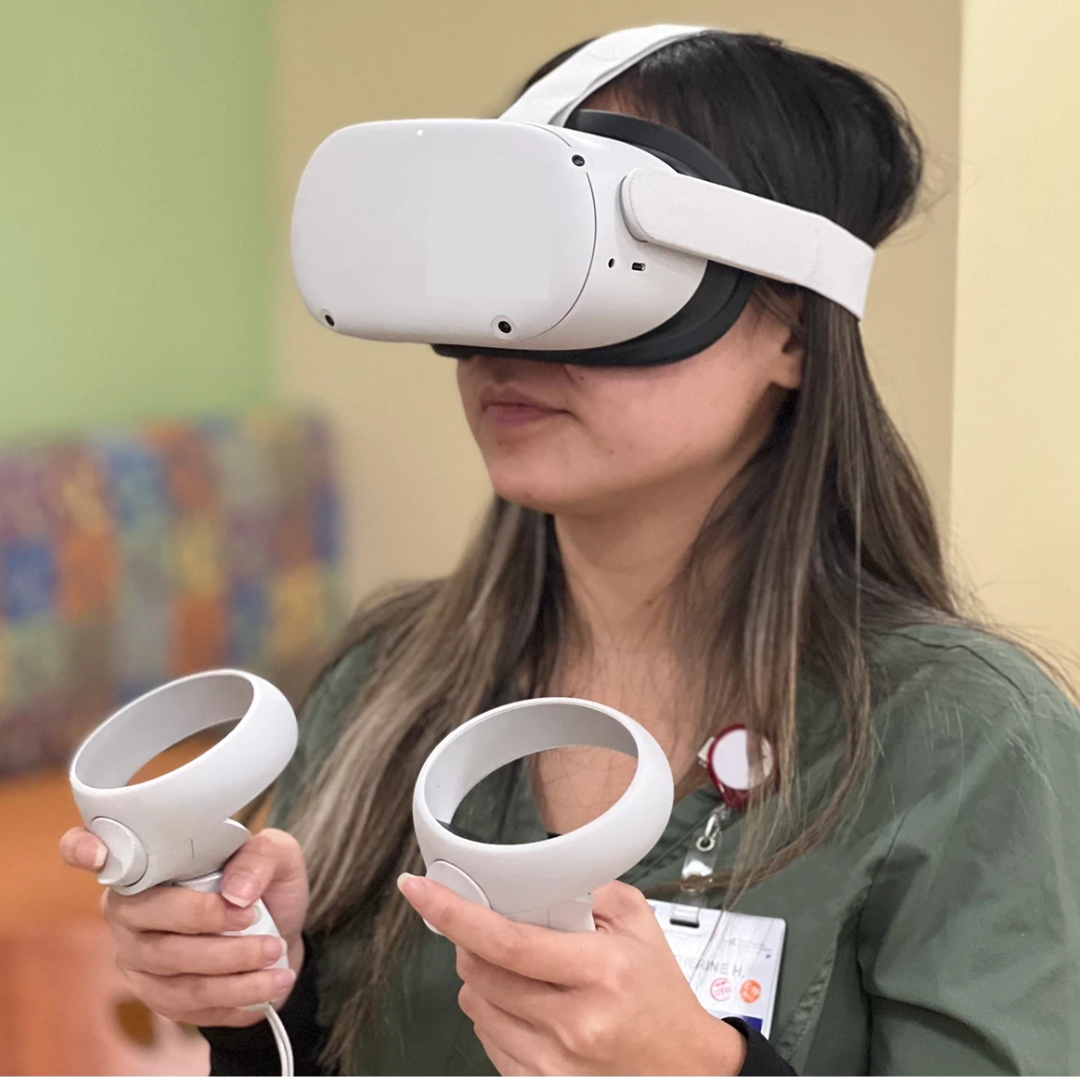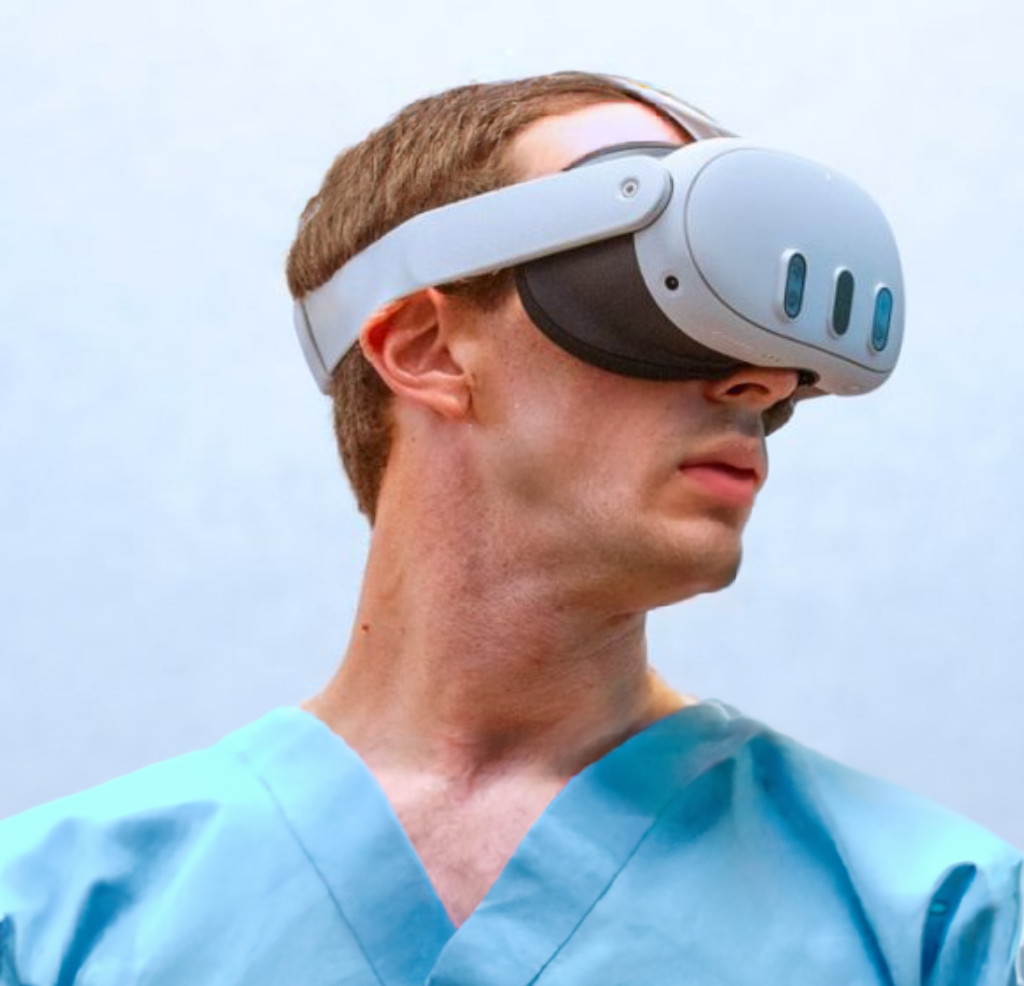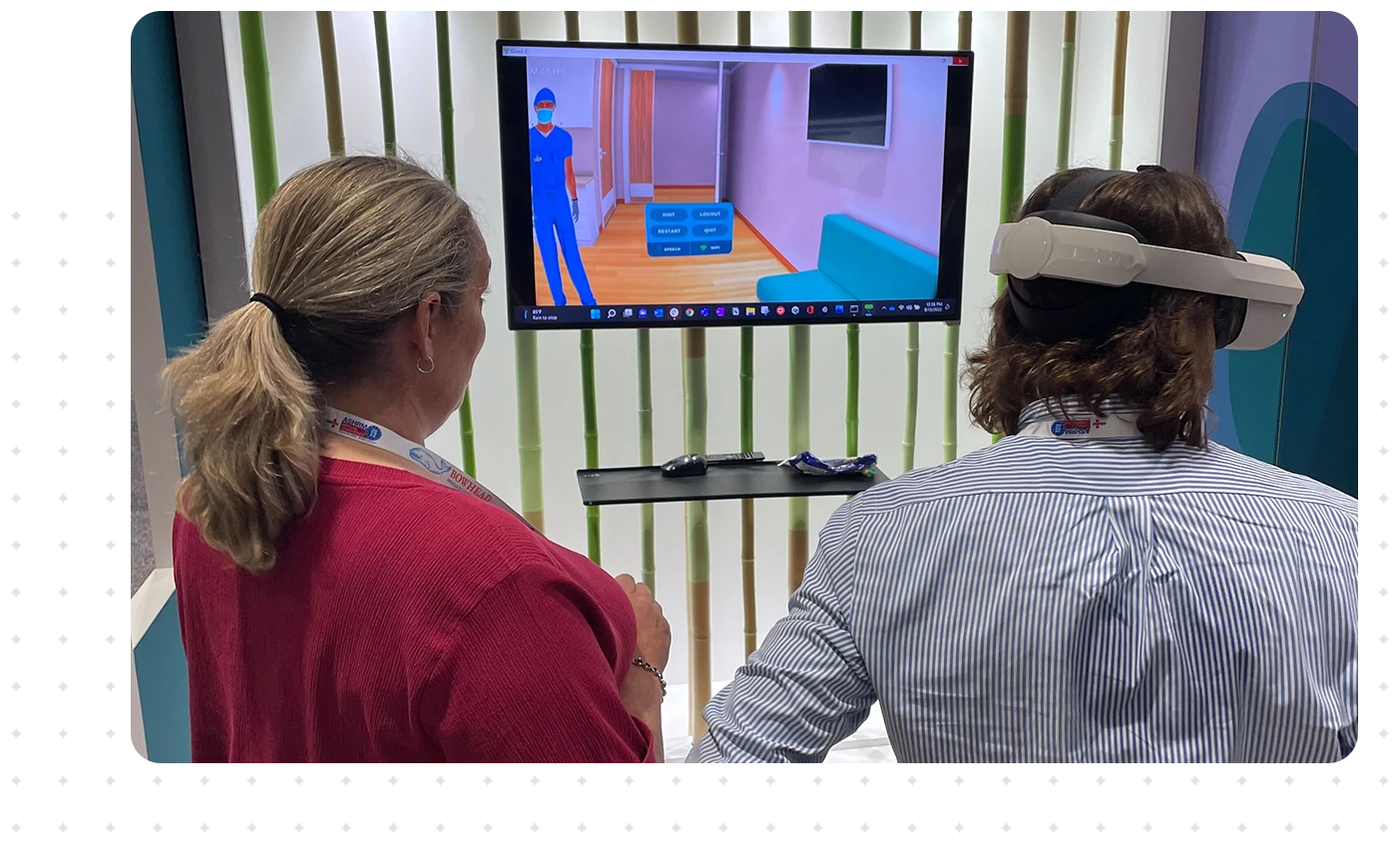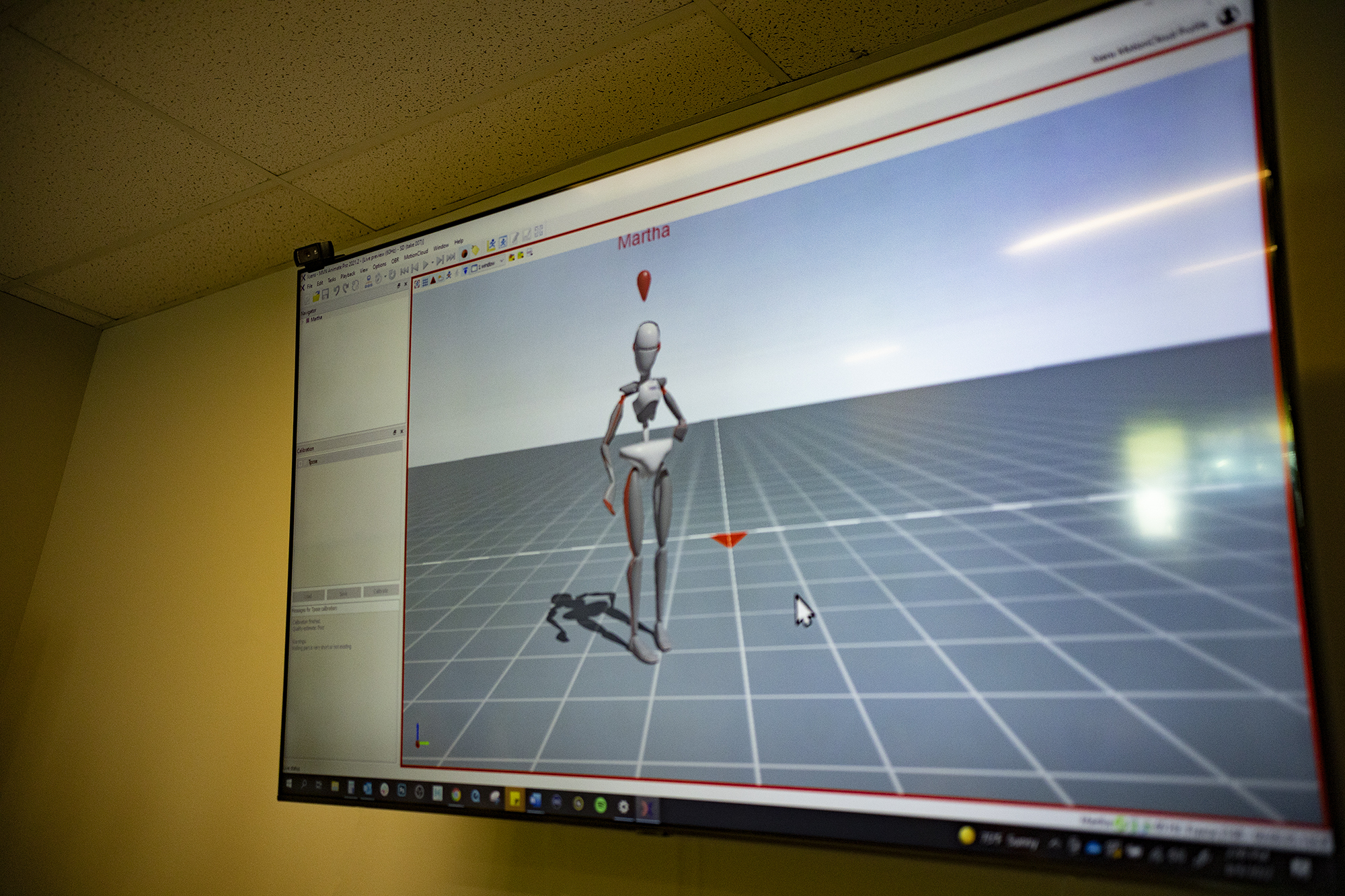
Revolutionizing Healthcare Education: The Impact of AI-Powered VR Training
Published July 11, 2023
In recent years, the healthcare industry has witnessed a profound transformation in the way clinicians are trained. The integration of artificial intelligence (AI) and virtual reality (VR) technologies has emerged as a revolutionary approach, redefining the educational landscape. By combining AI technologies with immersive VR simulations, clinicians hone critical skills and competencies, including communication, teamwork, decision-making, and critical thinking resulting in the strengthening of procedural memory.
AI and VR: A Powerful Combination for Clinical Education
The convergence of AI and VR has unlocked a wealth of possibilities for healthcare education. Institutions like Health Scholars are at the forefront of this innovation, leveraging AI technologies to enhance their VR training programs. By creating immersive simulations and leveraging AI algorithms, clinicians can engage in lifelike scenarios, simulating real patient interactions and procedures.
Health Scholars’ AI-powered Multi-Intent Voice Processing enables context-based understanding within VR healthcare scenarios. This breakthrough allows clinicians to experience patient care simulations in a remarkably realistic manner, utilizing their voice and hands to interact with virtual patients. The immersive nature of this training empowers clinicians to develop critical skills, build experience, and boost their confidence.
Accelerated Learning and Improved Efficiency
The traditional methods of healthcare education often fall short in providing clinicians with the practical experience they need. Classroom-based learning and extensive e-learnings cannot fully replicate the challenges and complexities of real-world healthcare scenarios. VR healthcare training, powered by AI, addresses this gap by compressing the learning process without compromising quality.
Through immersive VR healthcare simulations, clinicians can make crucial decisions, perform hands-on procedures, and engage in patient interactions. This practical approach facilitates accelerated learning, enabling clinicians to gain valuable experience in significantly less time compared to traditional methods. By leveraging AI algorithms, the training adapts to clinician actions and provides personalized feedback, further enhancing their development.
The Role of AI: A Guiding Partner
While AI plays a pivotal role in VR healthcare training, it is crucial to recognize its place as a guiding partner rather than a replacement for human expertise. AI algorithms provide clinicians with valuable information, recommendations, and additional insights. However, the clinician’s experience, critical thinking, and empathy remain essential components of delivering optimal patient outcomes.
The integration of AI in VR healthcare training equips clinicians with advanced tools and capabilities, enabling them to navigate complex healthcare scenarios more effectively. AI algorithms can analyze vast amounts of data, offer suggestions, and enhance decision-making. Yet, it is the clinician’s expertise and judgment that shape the ultimate outcome. The goal is to augment and empower clinicians, leveraging AI as a valuable resource.
Shaping the Future of Healthcare Education
The impact of AI-powered VR healthcare training extends beyond a single company. Across the industry, institutions are embracing this transformative approach to enhance clinical education. By immersing clinicians in realistic scenarios and leveraging AI’s capabilities, healthcare organizations are nurturing a new generation of highly skilled professionals.
As the healthcare industry evolves, the integration of AI and VR will continue to shape the future of healthcare education. Clinicians can expect to benefit from accelerated learning, improved efficiency, and enhanced patient outcomes. By embracing AI-powered VR training, healthcare organizations can ensure that clinicians are equipped with the skills and experience necessary to meet the evolving needs of the industry.
Embrace the Future of Clinical Education
The future of clinical education lies in the synergy between AI and VR technologies. If you are a clinician eager to embark on this transformative journey, explore the AI-powered VR healthcare training programs offered by various institutions. Immerse yourself in lifelike simulations, leverage the power of AI, and unlock your full potential as a healthcare professional.
As the industry continues to evolve, AI-powered VR training will play a pivotal role in shaping the next generation of clinicians. Embrace this revolution and witness firsthand how AI and VR can revolutionize healthcare education, driving better patient outcomes and empowering healthcare professionals across the board.

